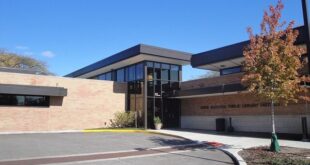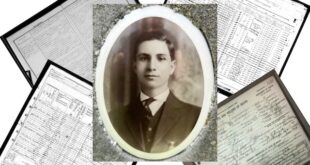After around 30 years of research experience, I have reached a point where I do what I do like a machine. I don’t think about the method. I just do it and it works. In the process of getting ready for presentations on “Beginning Italian Genealogy” I had to ask myself “How did I learn to do this in the first place.’ Then I decided that I don’t want any of you to learn the way I did, which was pure painful trial and error. There should be a simple guideline for the research method, to help you focus on …
Read More »Exploring the FamilySearch centers
I have been asked by people who are new to genealogy where they can go to get help from an expert, and where they can view records that are categorized as “restricted.” There are two equally valid choices, for different reasons: the nearest FamilySearch Center or Affiliate Library A FamilySearch Center (they were called Family History Centers until early 2023) is a small room in a Church of Jesus Christ of Latter-day Saints (LDS) building set aside for genealogical research. You do not have to be a church member to use this room, and no one will EVER give you …
Read More »Intro to genealogy, Part I
Starting Feb. 25, I began a series of monthly presentations at Casa Italia to give people the easiest way to get started with creating their ancestor family tree. A lot of people know a lot of disorganized information, some of it accurate, some of it not. My goal is to help you organize the info you have, and confirm the accuracy of what you know, or what you thought you knew. The types of information you can find is endless, but the traditional accepted way of comparing your family tree with others is to know seven essential facts about yourself …
Read More »Decoding rough handwriting
Last month, we went over some tricky problems with handwriting in old Italian records. We have to use some simple techniques to help you read the records with less effort and more accuracy. These techniques may not work in every situation but they are a standard logic to help you reduce the number of possible letters to choose from in each word. You may see a very poorly written word that looks at first glance like Mrysiclush, but that doesn’t make sense in Italian no matter what part of the record you are reading. Handwriting tip #1 is the easiest …
Read More »Decoding records indexes
Let’s discuss how this all works. Most records are hand-written. Problem number one. So for them to be indexed on-line, someone has to read them and type them in. This, of course, is called “indexing.” I know they are working on computer technology to try to read handwriting and convert it into computer text, but let’s presume that such technology is a long way from perfection, especially when reading handwriting from a century or two ago. So who is indexing the billions of records so we can search them so easily? We could probably end all unemployment if people could …
Read More »Remembering “Big Nonna”
For the past two months, I have been writing about how we need to talk to our older relatives and learn everything you can, because once they leave us, their memories of those who are long gone will no longer be accessible to us. That happened on Nov. 3 when our family matriarch, Mary Purpura, finally succumbed to old age just short of 101 years old. Technically, she was my grandfather’s kid sister. In reality, she was “Big Nonna,” grandmother to practically everyone whose lives she touched, including me. Why “Big Nonna”? Well, she was mother of 11 children and …
Read More »Oral history tips and insights
Last month, I told the story of a young man named Paolo who died so long ago that nobody remains who can tell anything about him. There are a few impersonal government documents and a grave monument that acknowledge his presence on the earth, but today there is simply no way to ask anyone anything about him. Today, I want to put a sense of urgency on talking to your living relatives who are old enough to remember people who died long ago. I have lost several relatives in the past couple of months. They lived far away and they …
Read More »You owe it to your family
I am reminded every day at work that my memory isn’t what it used to be. When I was a kid, I could remember which baseball card numbers I needed to complete the set of 660 Topps cards. I didn’t need a written list. I guess they would call that a photographic memory. Now, I leave my house without remembering to comb my hair! Or I get in my car and try to start it only to discover that I left my keys on the table! There’s a term for the status of my current memory, but I can’t remember …
Read More »Getting back down to business
Good day and I have missed writing for you all! Once public libraries and family history centers closed, most of our access to records was cut off along with most of what I write about in these columns. Let me explain. Most Italian civil records 1809-1929 and Cook County vital records can be browsed on familysearch.org, but the web site only allows you to browse them if you are in a Family History Center or an affiliate library. (Not all public libraries are affiliate libraries.) Familysearch has to have a certain router address in order to permit computers on that …
Read More »A virtual trunk full of documents
Familysearch has done it again! (If I had a nickel for every time I’ve written that, I’d have $2.85!) I have not been on Familysearch much, due to the fact that the records I need are only accessible from a Family History Center or an affiliate library, both of which are closed as of this writing. So when I got in and saw the menu, I was perplexed. The Search menu starts with Records but then says “Images.” I didn’t know what it meant so I skipped it. My curiosity finally got the better of me, and I clicked on …
Read More » Fra Noi Embrace Your Inner Italian
Fra Noi Embrace Your Inner Italian











